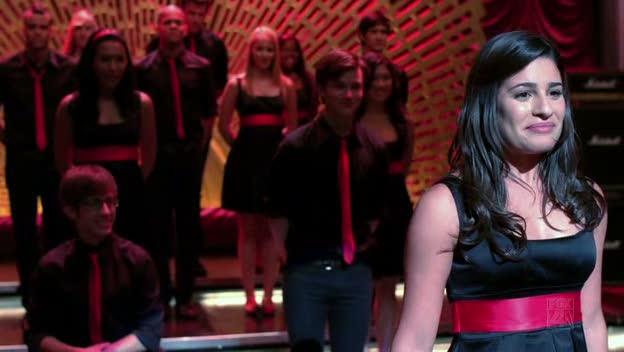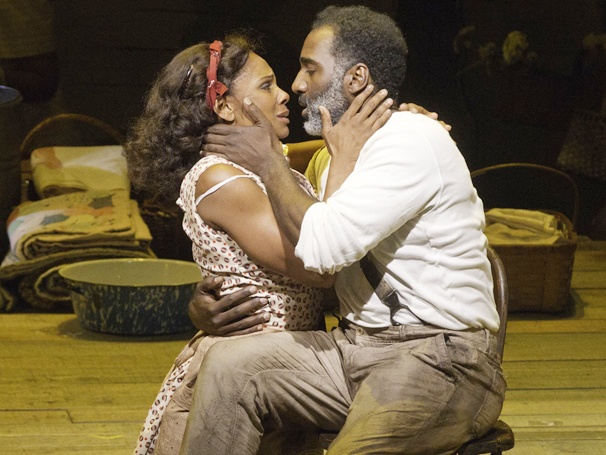 |
| "Don't Rain on My Parade," that shining moment where Glee actually lived up to its potential |
There seems to be a growing sentiment among the theatre community that Glee, that Fox show about all the misfit “teenagers” with a predisposition for bursting out into song, has jumped the shark. I find this turning of public sentiment on a show that just two years ago was the obsession of literally everyone to be both hilarious and a little sad. Because, dear reader, this sudden swelling of hatred for the show is entirely undeserved.
Now don’t get me wrong. Glee has major problems. It is an underwritten, poorly plotted piece of trash TV filled with two-dimensional characters who act in ludicrously unbelievable ways, while singing heavily auto-tuned renditions of songs only tangentially related to the plot. Whenever there is a storyline that holds actual interest, it is often shoved to the side to make way for yet another musical number or some nonsense about babies. There are more recurring characters than the writers know what to do with, a problem exacerbated by the constant parade of guest stars eating up valuable screen time that would be better used developing the leads.
But what most people seem to forget/deny is that the show has ALWAYS been this way. From the very beginning. Between the six or seven main kids and the half-dozen recurring adults, there have always been more characters than the writers have been able to comfortably handle. They have always behaved ludicrously, from Coach Sue’s irrational hatred of the Glee club (which, incidentally, was probably the most praised aspect of the show’s first season and even won Jane Lynch an Emmy) to Will’s wife attempting to fake a pregnancy around her freakin’ husband!
The show has also always struggled to incorporate the musical numbers in a way that makes sense. I distinctly remember an episode where Mercedes was convinced Kurt, the gayest TV character outside of the LOGO network, was actually straight, and when she found out he wasn’t interested in her smashed the window of his SUV while singing “Bust the Window Out Your Car.” As far as I can tell, this entire plot was concocted to allow her the chance to sing this song, and it came at the expense of making the character look like a complete idiot.
To claim that Glee has suddenly become bad TV is to willfully ignore the fact that it was bad to begin with. I think the majority of people confused “different” with “good” when the show first premiered, and I’ve suddenly gone from the being the guy arguing the show isn’t that good to arguing its better than people give it credit for. If you ask me, Glee has remained at about the same quality level as it always was: wildly uneven. Certain episodes (or segments of episodes) work like gangbusters, and others are so excruciatingly awful you wonder how it ever made it to air.
So be honest with yourselves. Glee is bad, and has always been that way. If you’re a former fan of the show who is now bashing it, you need to fess up to the fact that your former favorite show was never all it was cracked up to be.





